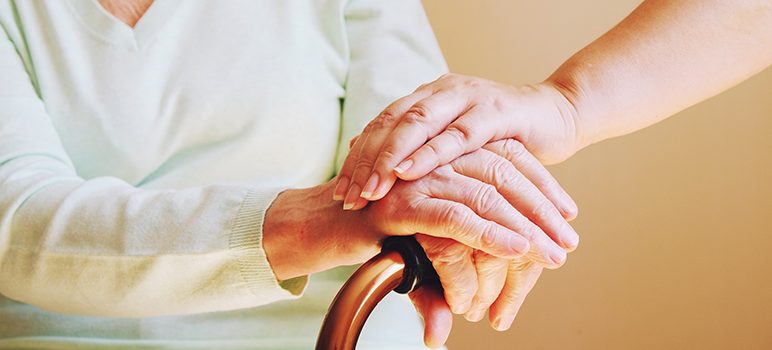It can come as a shock to learn that there are about 44 million family caregivers in the U.S. If you haven’t had direct experience with a relative or friend who cares for someone who is seriously ill or bedridden with a stroke or confused by dementia, it can be a mysterious activity. If you do know a caregiver or have been one yourself, it’s far from mysterious. You are very familiar with the range of bodily odors, the strain of bathing and clothing your mother or feeding your father and administering his medications.
There are about 24 million caregivers who are also employed. They must juggle their work hours and caregiving responsibilities. Even at work they are worrying about their relative, and, if they’re lucky, must use new technologies to monitor their charges’ vital signs, needs and safety.
This constant drain on the caregiver’s energy, time and compassion takes a heavy toll. It is natural, after being awake for 20 hours and catering to a demanding relative who doesn’t recognize you, to feel resentment and anger. Then guilt also emerges and leads to an existential conflict between taking care of someone else and taking care of yourself.
The vast majority of caregivers—about 85 percent—don’t receive any kind of respite care, according to a survey by the National Alliance for Caregiving and AARP. “Respite for a caregiver can come in a variety of forms: perhaps it's an hour or two off to take a class while someone else cares for your loved one, or it could mean utilizing adult day care or a supervised overnight or weekend visit to provide care.”
We think of family caregivers as children or younger relatives caring for an older patient, and we expect them to handle the challenges of caregiving. However, millions of grandparents and aunts (most caregivers are female) take care of children, teens and young adults. Violence, gangs, teen pregnancy and drug crises leave families broken and dysfunctional. It’s the previous generation that has the discipline and feels the responsibility to care for their young relatives.
So what can harried caregivers, those with back and shoulder pain, exhaustion and frustration at trying to make contact, do to make their lives better and ultimately give them the tools and inner resources to cope with the strains and anger they feel?
First, they need to know about organizations dedicated to helping caregivers, such as the National Center on Caregiving and the Aging Services Collaborative of Santa Clara County and similar organizations in other Bay Area counties.
They also can attend the eighth annual conference of Caregivers Count! from 8:30am to 2pm this Saturday. Held at the Campbell Community Center in the Orchard City Banquet Hall, 1 W. Campbell Ave. in Campbell, this conference features speakers and panelists dealing with self-care and compassion fatigue, hospital discharge planning and a panel of caregivers discussing advanced healthcare planning. Experts will also answer questions and give helpful advice.
Tuition is $15, but there are some scholarships available, and tickets may be bought by calling 408.260.3915. To register online, click here.
Family caregivers are dedicated, compassionate individuals who provide an estimated $470 billion of unpaid care each year. That’s almost the annual sales of Walmart, the world’s largest retailer.
If you are a caregiver, please attend this conference. Attendees in the past have raved about the no-nonsense, practical help they received. You care for others, making great sacrifices for your relatives and friends. It’s time you do something for yourself.
Steve Mangold is a communications professional with deep experience in healthcare, technology, social services, arts and education. Opinions expressed in this article are the author’s own and do not necessarily reflect those of San Jose Inside. Want to submit an op-ed? Email pitches to
je*******@me*******.com
.

